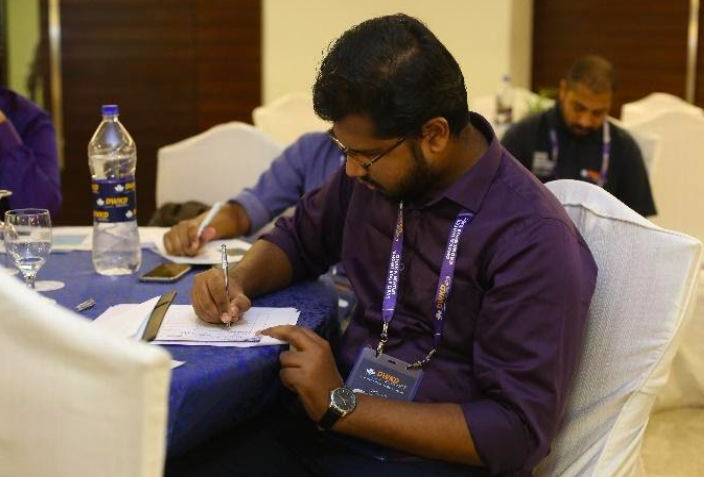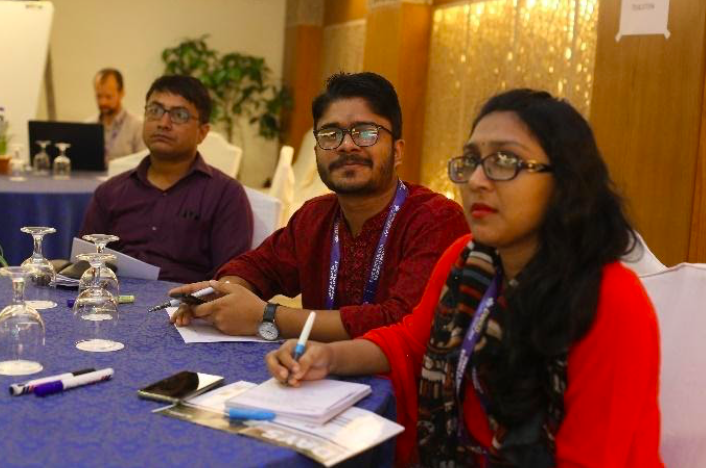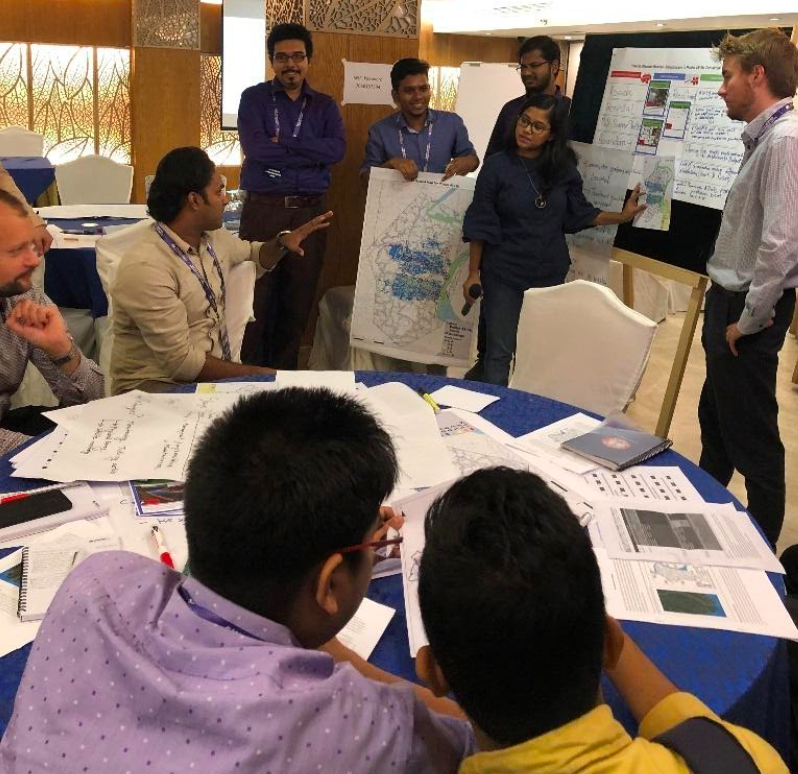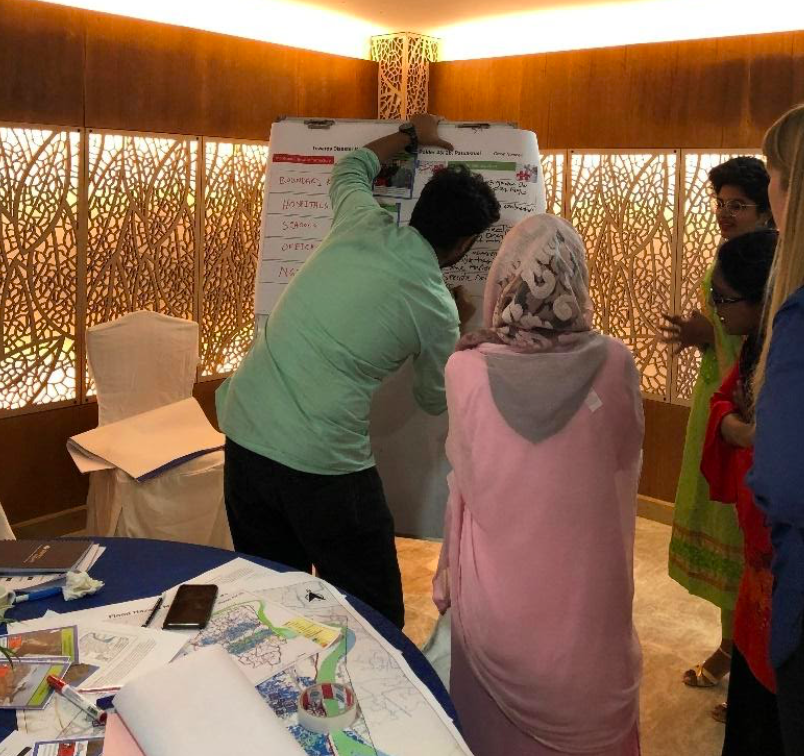Naditha Imbulana looks back at the Dhaka Water Knowledge Days (DWKD), a first for Bangladesh and writes about the successful event instrumental in sharing knowledge and building relationships between public, private, educational and research institutions towards implementation of Bangladesh Delta Plan 2100 (BDP 2100).
The Youth Forum on Disaster Resilient Infrastructure (YFDRI) was held during the Dhaka Water Knowledge Days (DWKD), 2019, a five-day-long event held in Dhaka, Bangladesh. The event successfully conducted 52 sessions, 11 keynotes and one panel discussion as a result of a joint effort by Deltares, Institute of Water Modelling (IWM), Center for Environmental and Geographic Information Services (CEGIS), Wageningen University and Research (WUR) and the Embassy of the Kingdom of the Netherlands. It provided a platform to exchange knowledge and experiences in improving water security and to participate in impactful discussions amongst Bangladeshi and international water experts, scientists, young practitioners and students through a series of interactive workshops, presentations and training sessions. YFDRI which was a joint effort by the Water Youth Network and the Deltares was held on the last day of this event.
The youth forum brought together the students and young professionals in the field of disaster risk reduction in Bangladesh and the Netherlands to exchange knowledge on critical infrastructure and recognize the importance and potential of youth for meaningful engagement in the process of improving their resilience to disasters.


To set the scene, we commenced the youth forum with two interesting presentations. Dr. Ana Laura Costa, an Infrastructure Resilience Expert at Deltares, delivered the first presentation on “Mainstreaming Disaster Risk Reduction – Example Applications” where she gave a general overview about floods, risks management and critical infrastructure and presented an example application in the Philippines. Following that Mr Joynal Abedin, an environmental expert in Bangladesh, delivered his presentation on “Current Initiatives for Disaster Resilient Infrastructure in the Southern Coast of Bangladesh” where he discussed actions taken by the government, NGOs, INGOs and local communities to improve disaster resilience and their respective role to better prepare for the future.
The more interactive segments of the workshop were followed by these informative presentations. The participants were divided into three teams and conducted a group activity on “Disaster Resilient Infrastructure in Polder 43/ 2b, Patuakhali” which was the highlight of the session. Its objective was to identify sustainable strategies to improve the disaster resilience of critical infrastructure in the Polder 43/ 2b and the capacity needed for their implementation. Mr Rafiqul Islam, who is working as a Community Engagement and Agriculture Expert in this polder, was on board with us as a resource person. He shared his knowledge of the study area with the participants prior to commencing the group activity. The groups were tasked with answering the three questions;
- Which critical infrastructure should be prioritized in improving their disaster resilience and why?
- Which measures do you choose to implement and why? And
- How will you implement the chosen measures?
The groups were provided with a flood hazard map of the polder overlayed with critical infrastructure in the area. In providing their answer they were first asked to identify and locate the most important infrastructure that should be protected, identify direct and indirect impacts to the critical infrastructure and rank the critical infrastructure based on their function, risk of failure and severity of impacts.


For the second question, each group was provided with a set of cards with mitigation and adaptation strategies, each assigned with a cost. This question turned out to be relatively challenging due to a constraint imposed by a limited budget which could not be exceeded. The participants had to make tough choices subjected to this limitation which in fact added real-world momentum to the exercise.
Groups further discussed stakeholder involvement, stages in the implementation process, existing capacity gaps and tools/ techniques that will be useful in implementing the measures selected in the above manner.
At the end of this part of the session, each group got the opportunity to present the outcome of the activity. This segment concluded with very interesting and lively discussions of defending the choices they have made.
Wrapping up the session, each group discussed the roles of young people for disaster resilient infrastructure; the opportunities, challenges and the supporting conditions to facilitate meaningful youth engagement in the process. An open dialogue was held reflecting on the outcomes of the group discussions. The outcome of such a discussion can be instrumental in moving forward, getting optimum youth contribution to the process.
The key takeaways from the session were that the youth has the potential, energy and the motivation to meaningfully engage in the process of increasing resilience of critical infrastructure to disaster, however, such engagement is quite challenging in the current system. The participants highlighted that there is a major communication gap between the youth and professionals/ policymakers and lack of funding for capacity development of young people. Furthermore, they expressed that an enabling environment for such constructive engagement can be created by recognizing their capacity and facilitating youth participation in seminars, training and workshops in future.
Marking the end of an eventful session, a new movement was initiated by the program organizers named “Bangladesh-Netherlands Water Youth Movement” which envisions to continue this dialogue, share knowledge between the two countries and facilitate effective youth contribution in protecting their deltas.










